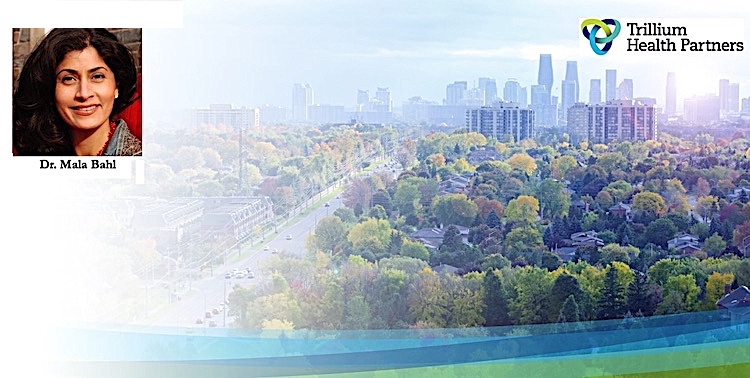By Sahana Rangnekar
TORONTO (IDN) – For the 18th year, Trillium Health Partners (THP)’s annual Diwali gala filled with fusion food, dancing and entertainment by Bollywood singing sensation Kanika Kapoor was celebrated in Mississauga, a suburb of Toronto in the Canadian province of Ontario, on October 18, 2019 to raise funds for combating cancer. The annual gala has raised more than $10 million for medical equipment, patient care spaces and research at THP.
 With an aging population, cancer volumes are on the rise. By directing proceeds to cancer care and advanced technologies, THP’s leading regional cancer program will be able to diagnose patients more rapidly and offer the most precise forms of treatment for the best possible outcomes. Funds will also help support health care research.
With an aging population, cancer volumes are on the rise. By directing proceeds to cancer care and advanced technologies, THP’s leading regional cancer program will be able to diagnose patients more rapidly and offer the most precise forms of treatment for the best possible outcomes. Funds will also help support health care research.
Dr. Mala Bahl, Trillium Diwali Medical Chair and THP medical oncologist believes these kinds of events are important “because when we get sick, we always want the highest technology or the latest research to be applicable to us…so when we’re healthy, it’s important for us to contribute to the community at large that is able then to support everybody to have good health and that involves having access to the best technology and the latest treatment”.
But, what is an oncologist?
An oncologist, says Dr. Bahl, is a physician who specializes in cancer medicine. Unlike doctors that treat cancer, surgeons, radiation specialists, and others who examine cancers under the microscope she is a medical doctor who actually gives medical treatment to cancer.
Cancer, she says, is one of the leading causes of death in Canada. About 1 in 2 people get cancer before they reach the age of 80. “it’s very important to have doctors that are able to treat and hopefully cure as many people as soon as possible.”
What progress has been made over the last decade in cancer research? How have these research findings been implemented in patients’ treatments?
The progress in cancer research has been tremendous, assures Dr. Bahi. “We’ve gone from people feeling sick on treatments to treatments that have very few side effects and more people cured. We are also seeing earlier diagnoses which helps to cure the cancer quicker.”
This is thanks to better technology that can detect cancer earlier “which always means an increased chance of a cure; in addition, surgeries have improved [and] the ways to treat [patients] have also improved.”
Key Facts based on WHO study
- Globally Cancer is the second leading cause of death, and is responsible for an estimated 9.6 million deaths in 2018.
– Approximately 70% of deaths from cancer occur in low- and middle-income countries.
– 300 000 new cases of cancer diagnosed each year among children aged 0-19 years.
– Around one third of deaths from cancer are due to the 5 leading behavioral and dietary risks: high body mass index, low fruit and vegetable intake, lack of physical activity, tobacco use, and alcohol use.
– The economic impact of cancer is significant and is increasing. The total annual economic cost of cancer in 2010 was estimated at approximately US$1.16 trillion.
From the improvements in technology and research, Dr. Bahl says, “people have better quality of life [despite having] a cancer diagnosis”. In the future, she would like to see more involvement in cancer prevention so that she doesn’t have to have an unfortunate conversation as often as she does, telling people that they have cancer.
Since Trillium Health Partners is a research hospital as well, she would like to see more money going into cancer prevention so that at the end of the day, there are fewer cancer patients. Festivities such as Diwali are therefore extremely important.
Dr. Bahl chose a career in medicine because she is passionate about science as well as connecting with people. She believes that the medical profession not only requires a “great understanding of medicine and the new technologies for treatment” but also the need for doctors to be compassionate.
She remembers many patients and their stories she has lived over 17 years. She recalls how important it was for them to be there for their family members during important events of their lives and is happy to have helped them achieve these goals.
There is no doubt that this job has a large amount of emotional stress and when asked how she deals with this she replies: ”I think a lot of doctors feel a lot of stress because of the things that we deal with and say, and I think when you’re at work you’ve got to put your best face on…it is sometimes very tough to deal with the emotions but I think one of the best things I tell myself is that it’s also okay to not hide your emotions from the patient.”
While acknowledges the emotional aspect of her job, she says, “If I feel sad about what somebody’s going through, I let them know that I feel sad about it. I don’t try to be strong for them and then be upset when I go home. It’s important for them to know that we’re human beings also.” [IDN-InDepthNews – 01 November 2019]
Collage with pictures from Trillium Health Partners, Logo and Dr. Mala Bahl.
IDN is flagship agency of the International Press Syndicate.
facebook.com/IDN.GoingDeeper – twitter.com/InDepthNews

